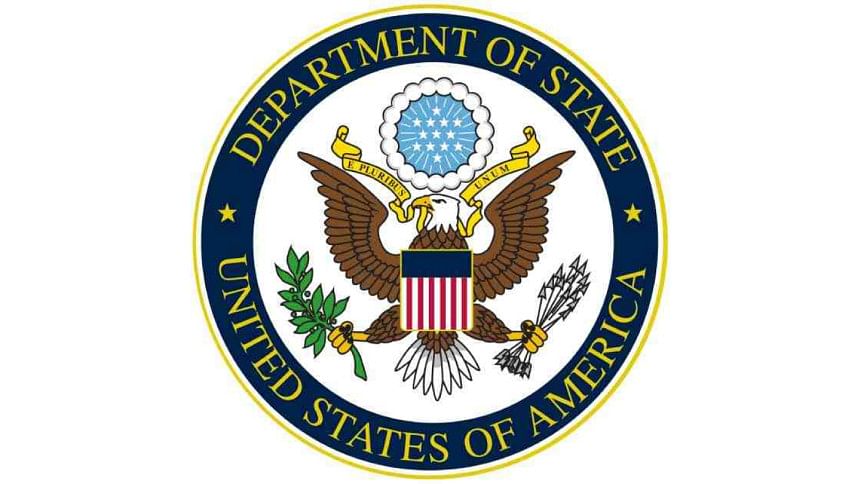US calls for cessation of violence in Rakhine State

The US has called for a cessation of violence, dialogue and renewed efforts in the face of escalating fighting in Rakhine State, to protect local communities, and unhindered access for humanitarian assistance.
"The United States remains concerned over the killing of members of local communities and displacement of thousands, which undermines prospects for the voluntary return of refugees and internally displaced persons and erodes prospects for peace," said US State Department Spokesperson Morgan Ortagus in a statement Wednesday.
According to rights bodies, hundreds of Rakhines and dozens of Rohingyas have been killed in the increased fighting between the Myanmar military and the Arakan Army in the recent months that have been termed as alleged war crimes and crimes against humanity by the UN Special Rapporteur on Myanmar, Yanghee Lee, in April.
Earlier in 2017, some 750,000 Rohingyas fled brutal military campaign in Rakhine state. Repatriation attempts failed over the years as Rohingyas say they have no guarantee of citizenship, safety in Myanmar where they have been denied citizenship since 1982.
Myanmar faces a genocide case at the International Court of Justice (ICJ). The International Criminal Court also began investigation into the forced deportation of the Rohingyas.
Morgan said the US reiterates its call for justice for victims and accountability for those responsible.
"We urge authorities in Burma to establish conditions conducive to the safe, voluntary, dignified, and sustainable return of refugees and internally displaced persons, and to deepen efforts to implement recommendations from the Kofi Annan-led Advisory Commission on Rakhine State."
Since 2017, the United States has provided more than $951 million to ease the humanitarian suffering of all affected by the crisis in Burma and Bangladesh, he said in the statement, appreciating Bangladesh's continued generosity in hosting more than 860,000 Rohingya in Cox's Bazar.
The US also called on other nations to ensure continued humanitarian support to Rohingya and to deepen efforts to resolve the crisis.
The US has imposed financial sanctions and visa restrictions on top military leaders and units linked to serious human rights abuses, supported UN investigation mechanisms, and encouraged Burma to participate fully in ICJ proceedings and to comply with court orders.
The US has appreciated the sustained commitment of the international community to hold the perpetrators of these atrocities to account, but added that "much more remains to be done".
The United States will continue to partner with the people of Burma as they work to overcome the legacy of authoritarian rule, expand democracy, and achieve peace, said Morgan.

 For all latest news, follow The Daily Star's Google News channel.
For all latest news, follow The Daily Star's Google News channel. 




Comments